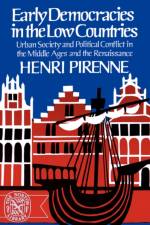av Henri Pirenne
257
Except for a thin slice of territory south of the Yser River, Belgium was entirely occupied by the Germans from October 15, 1914 until the end of the First World War. The suffering of the Belgian people, which made such a vivid impression on Americans, British, Canadians, and Australians at the time, has been largely forgotten. The invasion was accompanied by mass executions and wholesale arson; nearly 6,000 civilians were killed. Over 2 million Belgians escaped to the Netherlands, France, and Britain. When order was restored, the nation faced a grave economic crisis. A major exporter and among the most prosperous countries in Europe, Belgium was now cut off from its supplies of raw material and its markets, and subject to heavy war taxes, fines, and requisitions. As Germany began increasingly to feel the effects of the Allied blockade, the temptation grew to exploit to the hilt all Belgian resources, including labor. With eloquence and passion, the eminent medievalist Henri Pirenne (1862-1935) describes the hunger, the deprivations, the unemployment, the arbitrary arrests and deportations, the indignities of home invasions and confiscations, the censorship, the conscription of workers, the dismantling and destruction of Belgian factories, and the administrative division of the country. Belgium and the First World War comprehensively surveys the catastrophe and chronicles the stoicism and the resiliency with which Belgians responded.











